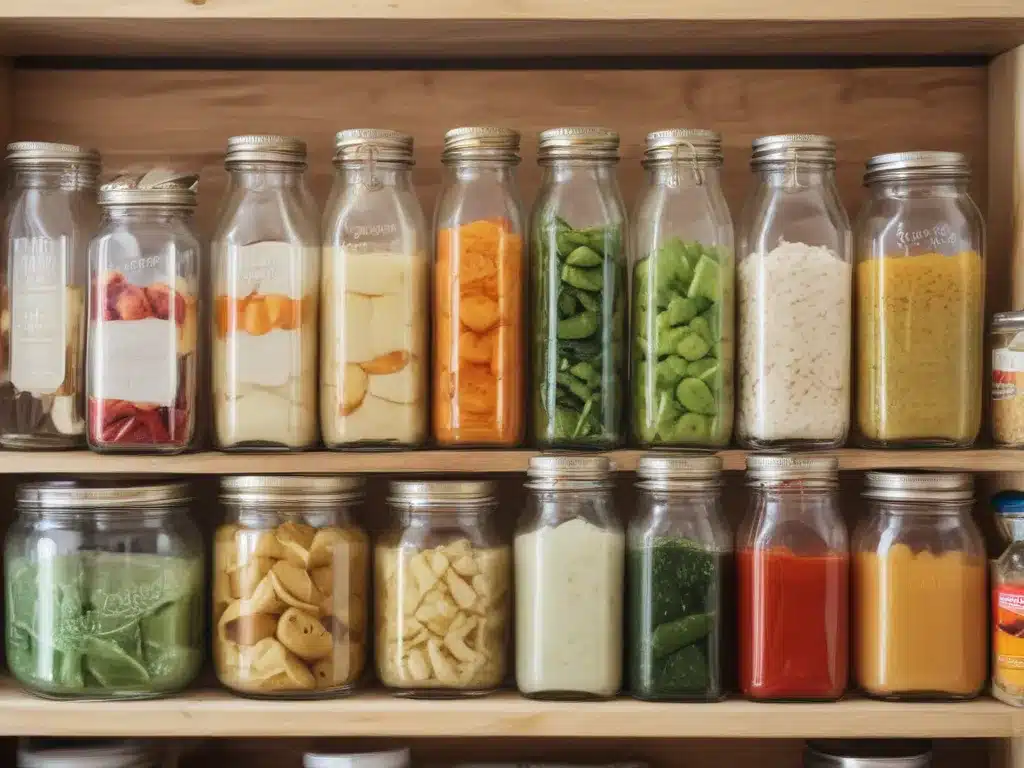Why Make Your Own Cleaners?
Cleaning products are a household necessity, but have you ever stopped to consider what’s actually in them? Many commercial cleaners contain harsh chemicals that can be harmful to your health and the environment. By making your own cleaners from natural ingredients, you can avoid these hazardous substances while saving money and reducing waste. Plus, it’s a fun and rewarding DIY project!
I love the sense of satisfaction that comes from creating something useful with my own hands. When I make my own cleaners, I know exactly what goes into them, and I can tailor the ingredients to my preferences and specific cleaning needs. It’s also a great way to repurpose common household items that might otherwise end up in the trash.
Common Natural Ingredients and Their Cleaning Properties
Before we dive into the recipes, let’s explore some of the most common natural ingredients used in homemade cleaners and their respective cleaning properties.
Baking Soda
Baking soda (sodium bicarbonate) is a versatile and effective cleaning agent. It acts as a mild abrasive and deodorizer, making it ideal for scrubbing and removing tough stains and odors. Baking soda is particularly useful for cleaning surfaces like sinks, tubs, and countertops.
Vinegar
Vinegar (acetic acid) is a powerful natural disinfectant and degreaser. Its acidic nature helps cut through grease, grime, and soap scum. Vinegar is also great for removing mineral deposits and hard water stains from surfaces like showerheads and faucets.
Lemon Juice
Lemon juice (citric acid) is a natural bleaching agent and deodorizer. Its acidic properties make it effective for removing stubborn stains and eliminating unpleasant odors. Lemon juice is commonly used in cleaning solutions for cutting boards, microwave ovens, and other kitchen surfaces.
Castile Soap
Castile soap is a versatile, plant-based soap made from olive oil. It’s gentle yet effective for cleaning various surfaces, including floors, countertops, and even dishes. Castile soap is also a popular choice for making homemade laundry detergent.
Essential Oils
Essential oils not only add a pleasant aroma to your homemade cleaners but also offer additional cleaning and disinfecting properties. Some popular essential oils for cleaning include tea tree oil (antimicrobial), lemon oil (degreaser and deodorizer), and lavender oil (disinfectant and deodorizer).
Recipes for Homemade Cleaners
Now that we’ve covered the main ingredients, let’s dive into some recipes for making your own custom cleaners. These recipes are easy to follow, cost-effective, and eco-friendly.
All-Purpose Cleaner
| Ingredients | Quantity |
|---|---|
| Water | 1 cup |
| Vinegar | 1 cup |
| Baking Soda | 2 tablespoons |
| Essential Oil (optional) | 10-15 drops |
Instructions:
1. In a spray bottle, combine the water, vinegar, and baking soda. Shake well to dissolve the baking soda.
2. Add the essential oil (if using) and shake again to combine.
3. Use this all-purpose cleaner to wipe down countertops, appliances, and other hard surfaces.
Tub and Tile Cleaner
| Ingredients | Quantity |
|---|---|
| Baking Soda | 1/2 cup |
| Castile Soap | 2 tablespoons |
| Vinegar | 1/4 cup |
| Essential Oil (optional) | 10-15 drops |
Instructions:
1. In a bowl, mix together the baking soda and castile soap until a thick paste forms.
2. Add the vinegar and essential oil (if using) and stir well.
3. Apply the paste to the tub, tiles, or other bathroom surfaces using a sponge or brush.
4. Let it sit for a few minutes, then scrub and rinse with water.
Glass and Mirror Cleaner
| Ingredients | Quantity |
|---|---|
| Vinegar | 1/2 cup |
| Water | 1/2 cup |
| Isopropyl Alcohol (optional) | 2 tablespoons |
| Essential Oil (optional) | 10-15 drops |
Instructions:
1. In a spray bottle, combine the vinegar, water, and isopropyl alcohol (if using).
2. Add the essential oil (if using) and shake well to combine.
3. Spray the solution onto glass surfaces or mirrors and wipe clean with a microfiber cloth or paper towels.
Wood Furniture Polish
| Ingredients | Quantity |
|---|---|
| Olive Oil | 1/2 cup |
| Vinegar | 1/4 cup |
| Lemon Juice | 2 tablespoons |
Instructions:
1. In a bowl, mix together the olive oil, vinegar, and lemon juice.
2. Dip a clean cloth into the mixture and wring out any excess liquid.
3. Rub the polished wood furniture in the direction of the grain, using circular motions.
4. Buff the surface with a clean, dry cloth to remove any excess oil.
Tips and Considerations
- Always label your homemade cleaners with the ingredients and date of preparation.
- Store your cleaners in a cool, dark place away from direct sunlight and heat.
- Avoid using abrasive materials like scouring pads on delicate surfaces.
- Test the cleaner on a small, inconspicuous area first to ensure it doesn’t damage or discolor the surface.
- Adjust the recipes to suit your preferences or specific cleaning needs.
- Consider using reusable spray bottles or containers to reduce waste.
Conclusion
Making your own custom cleaners from natural ingredients is a rewarding and eco-friendly endeavor. Not only will you save money, but you’ll also have peace of mind knowing exactly what goes into your cleaning products. With these recipes and tips, you can create effective and safe cleaners tailored to your specific needs. So why not give it a try and enjoy the satisfaction of a spotless, fresh-smelling home without harsh chemicals?







